Monthly Journal
October 2024
International Press Review
The most relevant events of the area through international sources

Balkan countries express support to Ukraine at Dubrovnik summit
Balkan Insight
At a summit in Croatia attended by Volodymyr Zelensky, top officials from 12 southeast European states signed the ‘Dubrovnik Declaration,’ expressing support for Ukraine’s independence and its aspirations for EU and NATO membership. Zelensky praised the declaration, which reaffirmed support for Ukraine’s sovereignty and territorial integrity. However, the text omitted a call for all Balkan states to impose sanctions against Russia and for military assistance to Kyiv,
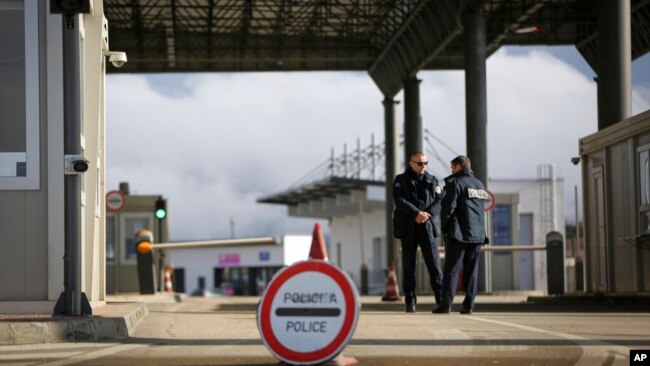
Kosovo allows entry of Serbian goods after more than one year
AFP
After pressures from Germany, Kosovo relaxed its punitive measures on goods imported from Serbia to safeguard its inclusion in regional trade agreements such as CEFTA and to maintain cooperation with the European Union. The restrictions had initially been imposed after a tense incident on Kosovo’s northern border in June 2023, when Serbian police detained three Kosovo’s police officers. The more lenient current approach started initially to be applied only at Merdare, the busiest border crossing between Serbia and Kosovo, with goods undergoing manual checks until special scanners arrive, forcing vehicles to wait for hours or even days at the border.
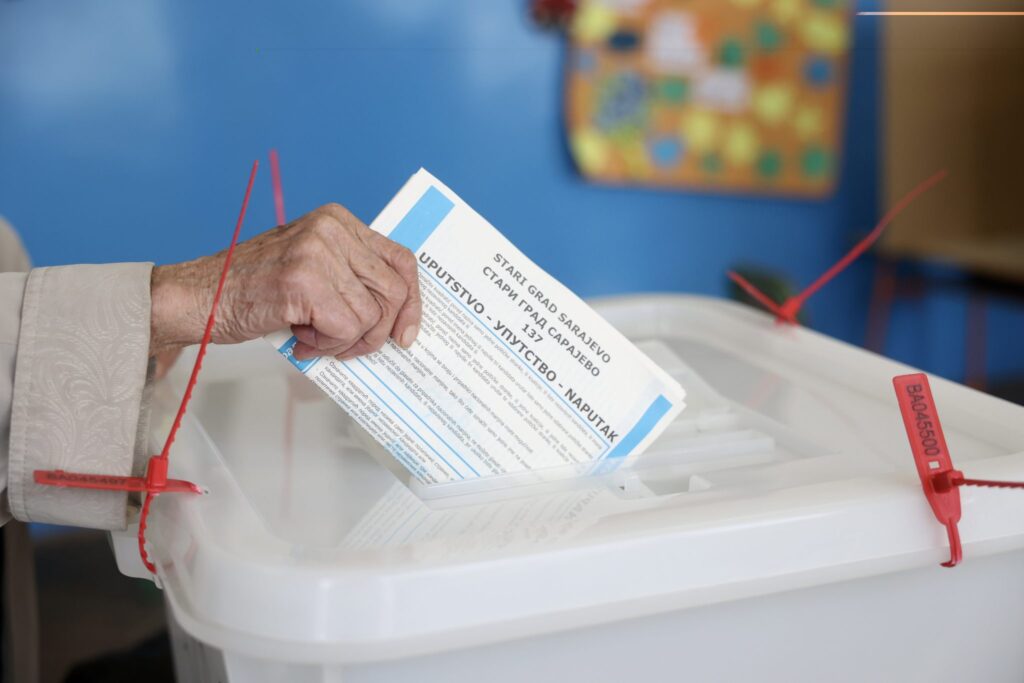
No surprise in Bosnia’s local elections
Balkan Insight
Results from local elections hold in Bosnia and Herzegovina in October indicated that major national parties kept control over most town halls, although their performance in larger urban centres was weaker. However, no significant changes in municipal governance are expected. The major national parties struggled to gain support in big cities like Banja Luka, Tuzla, and Zenica, while retaining a strong grip on smaller towns. The SNSD party, led by Milorad Dodik, secured 51 out of 63 municipalities and towns. In the Bosnjak-Croat Federation, coalitions of the so-called ‘Trojka parties’ preserved most of their previously held mayoral seats.
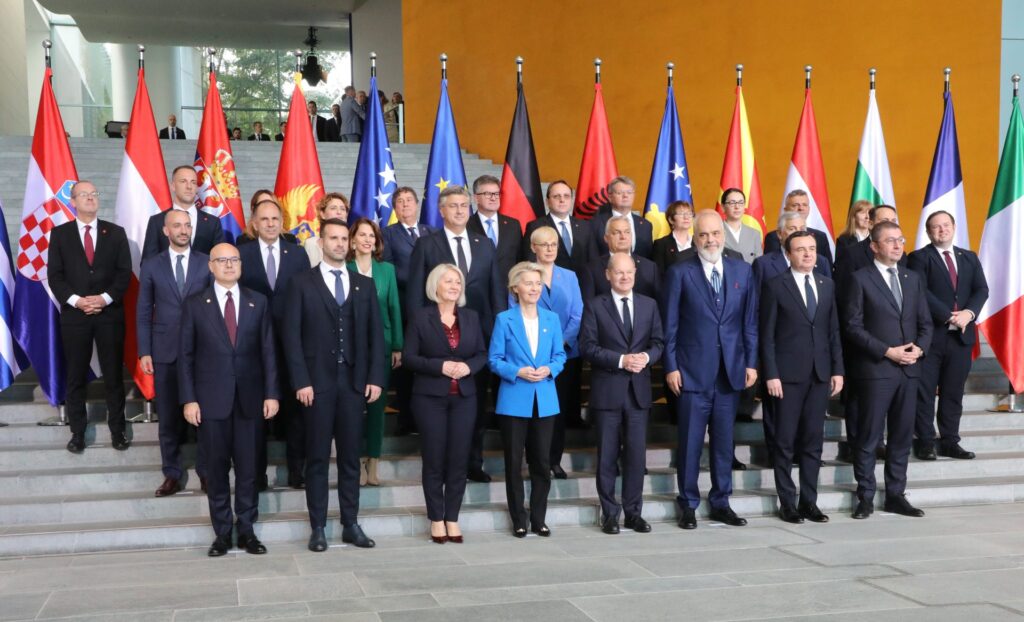
Berlin Process celebrates anniversary focusing on education and economy
European Western Balkans
During the Berlin Process Summit, hosted by German Chancellor Olaf Scholz in October, the Prime Ministers of the Western Balkans countries signed a Declaration of Support for the Common Regional Market Action Plan 2025-2028 and an Agreement on Access to Higher Education and Admission to Higher Studies in the region. Balkan leaders also acknowledged progress made concerning the Central European Free Trade Agreement (CEFTA). The summit marked the 10th anniversary of the Germany-led initiative.
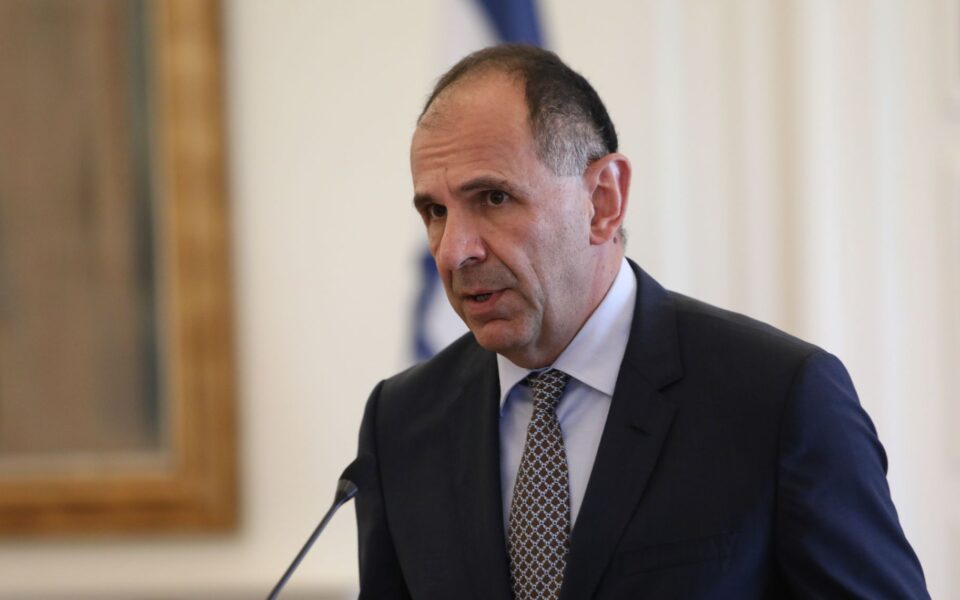
Greece pushes for EU integration of the Western Balkans
Kathimerini
At the Berlin Summit, Greek Foreign Minister George Gerapetritis assured that Greece would continue to lead the integration of Western Balkan states into the European Union as part of the ‘Berlin Process.’ He emphasised that an expanded EU would strengthen the union, highlighting Greece’s unique position as the oldest EU member from the Balkans and a non-permanent UN Security Council member. Gerapetritis reiterated the importance of Western Balkan nations adhering to EU standards, international law, and the rule of law, stating that there could be no compromises on these criteria.
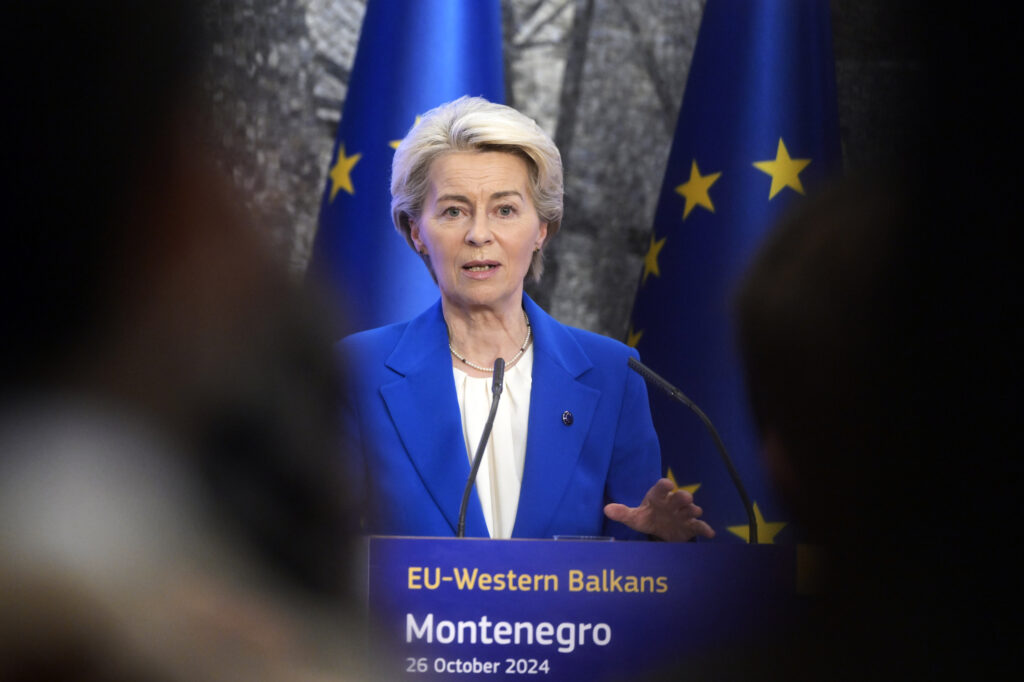
Von der Leyen travelled again to the Balkans
European Commission
Commission President Ursula von der Leyen concluded at the end of October a four-day visit to the Western Balkans, where she met with the leaders of Albania, North Macedonia, Bosnia and Herzegovina, Serbia, Kosovo, and Montenegro. The trip provided an opportunity to assess the progress made by these nations since the adoption of the Growth Plan for the Western Balkans, and their respective paths towards EU accession, the EU executive said. Von der Leyen praised their efforts and commitment towards joining the EU of the leaderships in the region, emphasising that enlargement would remain a top priority on her agenda for the next five years.
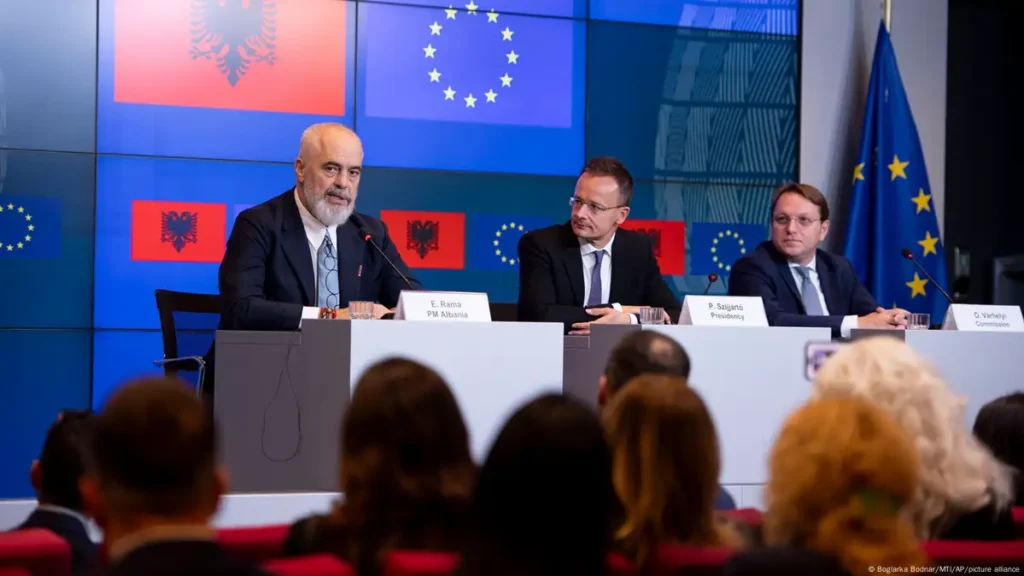
Albania kicks off EU membership negotiations
Politico
Albania opened the first chapters of its negotiations for accession to the European Union in Luxembourg, a historic step. The Balkan nation, which received candidate status in 2014, held its first accession conference with the EU in July 2022. The opening of the first cluster represents a significant advancement in Albania’s journey towards EU membership. Prime Minister Edi Rama expressed confidence in the country’s progress, affirming the goal of achieving EU membership by 2030.
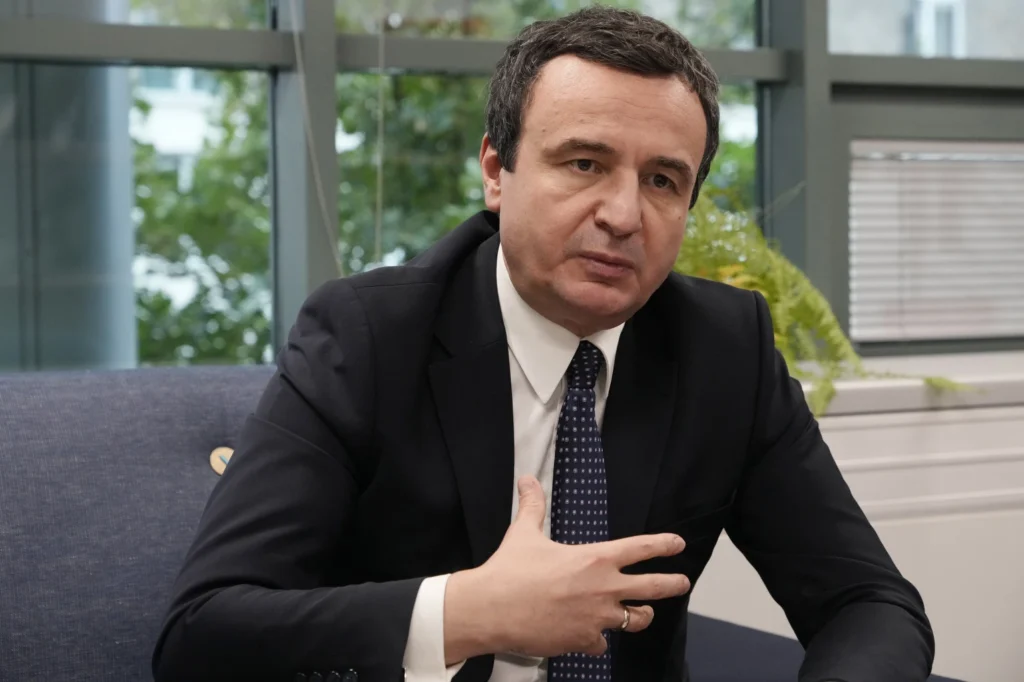
Kosovo’s PM warns a Russian victory in Ukraine will destabilise the Balkans
The Associated Press
In an interview with The Associated Press, Kosovo’s Prime Minister Albin Kurti said that the Balkan region has experienced significant peace, freedom, and democracy over the past 25 years. However, Kurti warned that this stability could be jeopardised if Russia succeeds in Ukraine and subsequently fosters alleged Serbian expansionism in the Balkan region. Kurti argued that a more powerful Russia would embolden Serbia, posing risks not only to Kosovo, but also to Bosnia, Montenegro, and potentially North Macedonia.
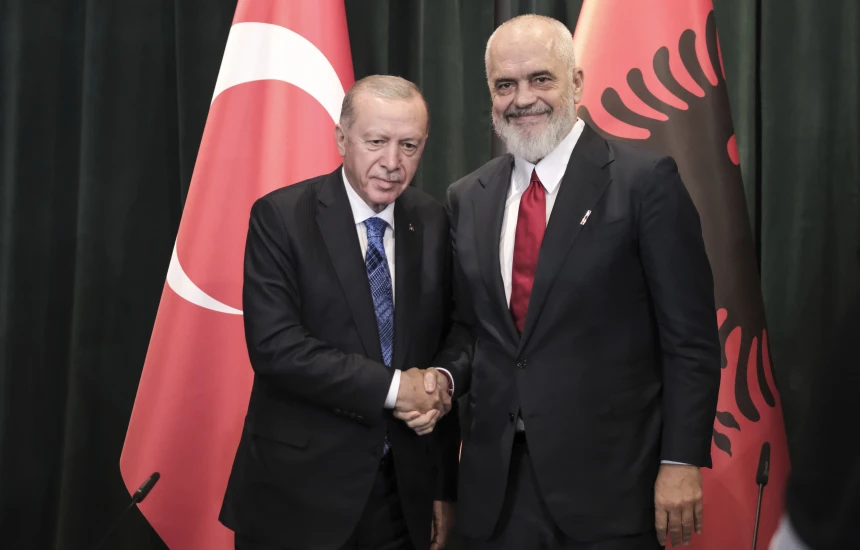
Erdogan promises ‘loitering drones’ to Albania
Reuters
Turkish President Tayyip Erdogan announced during a visit to Tirana that he would supply a “considerable” number of loitering munitions drones to Albania, according to Prime Minister Edi Rama. While details regarding the number and type of drones were not provided, most probably it could be the Kargu (Mountain Watch Tower) quadcopter type. Following Russia’s invasion of Ukraine in 2022, many Western Balkan nations, including Albania, began upgrading their military capabilities with TB-2 Bayraktar (Standard Bearer), recce and attack drones. In Belgrade, the second leg of his trip, Erdogan announced stronger military cooperation also with Serbia.
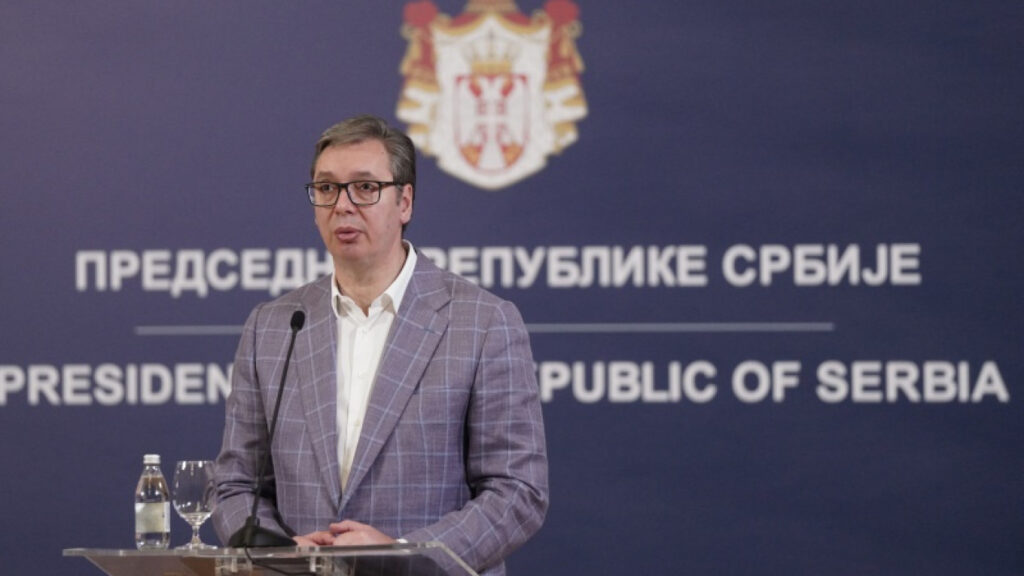
Vucic talks to Putin after more than two years, but
The Moscow Times
Serbian President Aleksandar Vucic spoke by phone with Russian President Vladimir Putin for the first time in two and a half years. Vucic expressed gratitude to Putin for ensuring adequate gas supplies for Serbia during the winter. This conversation marked Vucic’s first direct communication with Putin since May 2022. During the call, Vucic reaffirmed Serbia’s commitment to not imposing sanctions against Russia. However, Vucic demonstrated a degree of distancing himself from Moscow by opting not to attend the BRICS summit, despite receiving a personal invitation to Kazan directly from Putin.
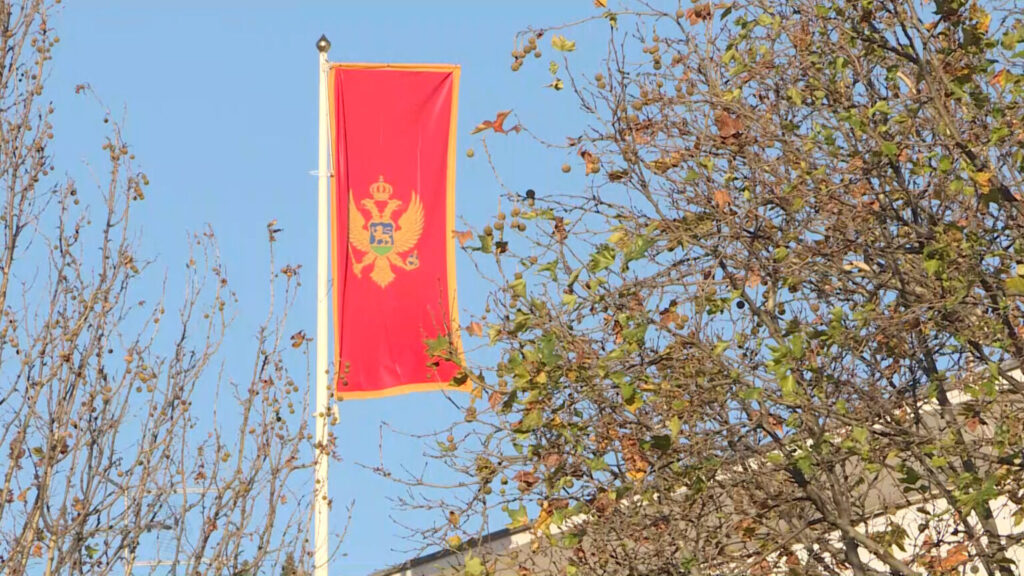
In Montenegro census 33% declare themselves as Serbs
N1
The results of the December 2023 population census in NATO-member and EU candidate country Montenegro, published in October, revealed that the largest group living in the Adriatic nation identified as Montenegrins, comprising 41,12% (256.436) of the population. This was followed however by a larger number of Serbs than probably expected, at 32,93% (205.370) and Bosniaks at 9,45% (58.956). The majority, 71,1% (443.394), identified as Orthodox Christians, while 19,99% (124.668) responded that they adhered to Islam, while 3,27% (20,408) declared themselves as Catholics. Additionally, 4,97% (30.978) of citizens declared themselves as Albanians, 2,06% (12.824) as Russians, and 1,63% (10.162) as Muslims.
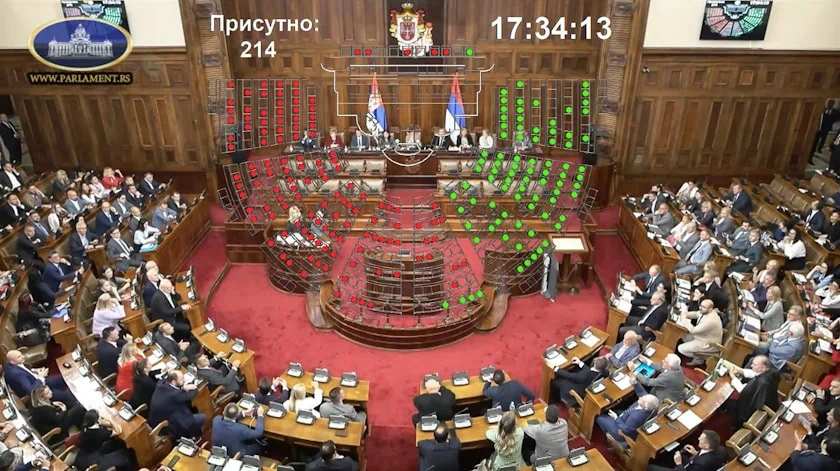
Serbian Parliament rejects lithium mining ban proposal
Balkan Green Energy News
Serbia’s Parliament voted down opposition-proposed amendments to the Mining and Geological Explorations Law, which aimed to ban lithium and boron mining. The opposition, officially presenting its case in parliament for the first time, raised environmental and public health concerns linked to mining giant Rio Tinto’s Jadar project, planned near Loznica. Local activists and environmentalists argue the project poses risks to agriculture, livelihoods, and health. Additionally, opponents question the project’s economic viability, citing low mining royalties, government subsidies, and infrastructure costs.
The Insight Angle

Florian Bieber
Florian Bieber is widely regarded as one of the leading political analysts and experts on the Balkans. He is a Professor of Southeast European History and Politics and the Director of the Centre for Southeast European Studies at the University of Graz, in Austria. Bieber studied History and Political Science at Trinity College, at the University of Vienna and the Central European University. From 2001 to 2006 he worked in Belgrade and Sarajevo for the European Centre for Minority Issues. He is also a Visiting Professor at the College of Europe in Tirana. He has taught at the Universities of Kent, Bologna and Sarajevo, as well as Cornell University, and Central European University. Between 2019 and 2023, he held the Jean Monnet Chair in Europeanisation of Southeastern Europe. Bieber is also the coordinator of Balkans in Europe Policy Advisory Group (BiEPAG).
In recent months, tensions between Serbia and Kosovo have escalated, with the situation in the north more volatile than ever also due to Pristina’s efforts to assert its sovereignty in the area. And the Brussels dialogue has fully stalled. Do you think the two sides will return to the negotiating table anytime soon? And with Vucic and Kurti likely to remain in power for a long time, is there any real chance for a lasting compromise on normalisation between the two countries?
While negotiations are likely to continue, I don’t see a breakthrough any time soon. From the side of Serbia there is no interest in changing the status quo. Thus, the incentives are lacking. On the Kosovo side, Kurti has also been polarising and not suggesting that the Kosovo is also eager to resolve the open issues. As a result, I fear continued discussion without much movement.
Moreover, with tensions in the north simmering – and considering the precedent set by the incident in Banjska – do you believe there is a tangible risk of even a small-scale conflict?
The risk of small-scale conflict remains unless there is a fundamental shift in relations between the two countries. While currently there is no interest in conflict, an escalation is possible, if there are incidents like the one in Banjska. Violence can be part of a deliberate strategy and also could occur if one of the actors miscalculates. In addition, if Trump wins the US elections or otherwise there is a threat to the security arrangements in the region, the risk of violence increases.
Bosnia and Herzegovina is the second most delicate issue in the Balkans. Despite being granted candidate status, its EU integration process is not advancing rapidly, while Bosnian Serb leader Dodik openly receives support from Moscow and evokes the option of the Republika Srpska secession. Should Europe be concerned about further destabilisation in the country?
Bosnia has been continuously getting weaker, and thus, fragility is a serious threat. While Dodik is likely to not openly secede unless he believes he will succeed, the gradual erosion of the country is a looming threat. There is no serious EU integration dynamic to counterbalance it.
More than 20 years have passed since the Thessaloniki summit, and the Western Balkans are still far from full EU integration. Do you think anything will change during the term of the new European Commission? And do you believe Brussels’ gradual approach (economic integration before full membership) is the right strategy?
I am moderately hopeful that the new Commission will be a more constructive actor in regard to enlargement, as it will not be led by an Orban loyalist [Olivér Várhelyi, note of the Editor]. This is an opportunity for a more serious approach. However, there are two challenges. First, the EU and some members appear to prefer transactional approach and making a deal for their own benefit, from migrant camps in Albania to lithium mines. Second, without a clear path to membership, the prospects to membership remain slim. The idea of gradual integration is good. If it is taken seriously, it can help the region. However, the gradual process has to keep the end goal in focus and not but a permanent waiting room.
North Macedonia’s EU path is now decoupled from Albania’s, Kosovo is still not a candidate country, Bosnia remains weak and divided, and Serbia continues its dual-faced foreign policy. What risks does the region and the EU face if the Balkans remain sidelined for another five years or longer?
The EU is increasingly being seen as irrelevant in the region. Elections are not won on EU issues and no EU flags are shown during protests, and citizens increasingly don’t believe they will ever be members, thus the EU risks become meaningless. This creates considerable risks in terms of political stability, and for EU’s leverage in the region. It also undermines its credibility in Ukraine and more widely. Finally, there is the risk that other global actors, such as China, will continue to increase their influence to the detriment of the EU and regional stability.
The Key Story
Strategic trends
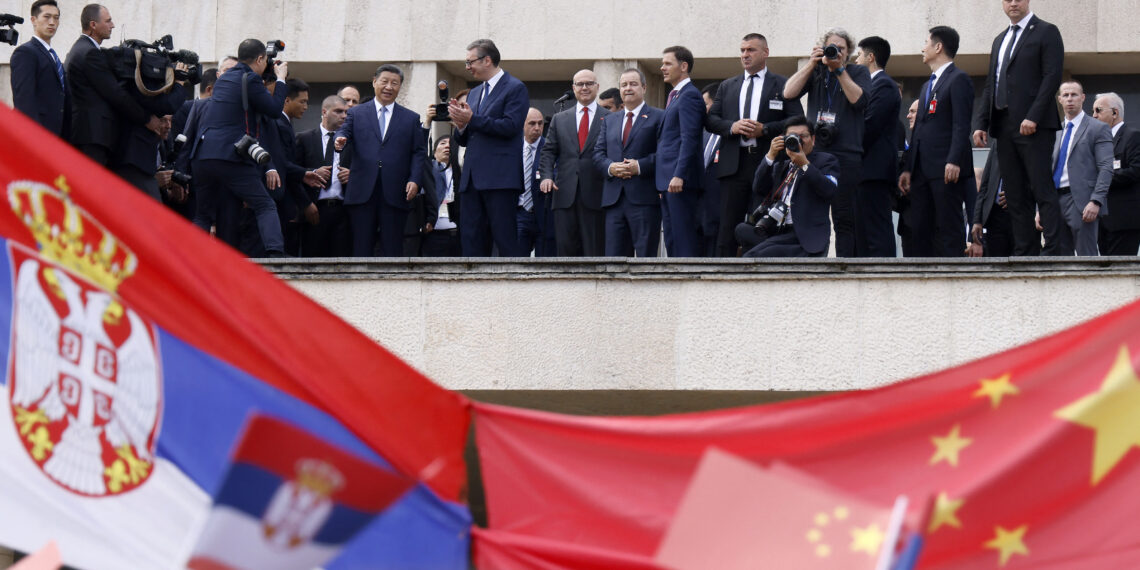
EU warns Serbia to steer clear of Russia and China
In a rare but decisive move, the European Union has warned Serbia—a key state for Balkan stability and an EU candidate country—to engage more constructively with the EU during its accession process and to distance itself from external powers like Russia and China, the latter of which has an increasingly prominent presence in the Balkans.
The EU’s warning was included in its annual report on Serbia, part of the so-called ‘Enlargement Package’—a comprehensive assessment detailing the progress and current status of Albania, Bosnia and Herzegovina, Kosovo, Montenegro, North Macedonia, Serbia, Georgia, the Republic of Moldova, Ukraine, and Turkey on their respective paths towards EU accession.
On one hand, Serbia was commended for meeting the benchmarks required to open Cluster 3 (‘Competitiveness and Inclusive Growth’). However, Brussels emphasised that in the coming year, Belgrade is expected to accelerate the implementation of EU accession-related reforms across several other areas, with particular emphasis on strengthening the rule of law and ensuring a genuinely enabling environment for civil society and the media. Additionally, Serbia was urged to make credible efforts to counter disinformation and prevent foreign information manipulation.
The EU’s sharpest remarks towards Serbia, however, centred on Belgrade’s distinctive and complex foreign policy stance. Indeed, while Serbia has officially declared EU membership a strategic priority, it continues to nurture close ties both with Moscow and, more recently, increasingly with Beijing—a ‘trilateral’ geopolitical position that is “raising questions about Serbia’s strategic direction,” the EU cautioned. Furthermore, Serbia, even if it is providing “financial and humanitarian support” to Ukraine, it “still does not to align with any restrictive measures against the Russian Federation,” i.e. the sanctions against Moscow and it has “maintained high-level relations with the Russian Federation and intensified its relations with China,” the report reads.
Among the EU’s most pressing concerns regarding Serbia, the report highlighted that Serbia has continued to prevent circumvention of EU restrictive measures introduced in response to Russia’s aggression against Ukraine via Serbian territory or through legal entities registered in Serbia. Furthermore, Serbia has maintained close relations and strategic partnerships with Russia. The EU also urged Serbia to reduce its dependency on Gazprom and the Russian-majority ownership of Serbia’s critical infrastructure and oil industry.
Regarding Beijing, the EU noted Serbia’s deepening ties with China, highlighted by the entry into force of a Free Trade Agreement with China on 1 July, a move the EU considers a “strategic concern” for the bloc.
Criticism of Serbia’s foreign policy was strengthened by the strong language used by High Representative Josep Borrell. “We want to count on Serbia as a partner with shared principles, values, security, and prosperity, and we need Serbia to reassure us of its strategic direction,” Borrell stated following the report’s release. “We have been crystal clear with our partners—including Serbia—that relations with Russia cannot proceed as business as usual under Putin’s regime, especially in light of Russia’s attack against Ukraine. The deepening of Serbia’s relationship with China is also a strategic concern in the current geopolitical context,” he emphasised.
“I think that Serbia, sooner or later, will have to align their foreign policy with the European Union’s foreign policy. Otherwise, membership will be jeopardised,” Borrell said.
It should also be noted that European Commission President Ursula von der Leyen cancelled talks with Serbian Prime Minister Milos Vucevic at the end of October following his meeting with a Russian minister.
The criticism from Brussels was received tepidly in Belgrade, with President Aleksandar Vucic acknowledging the EU’s assessment of Serbian foreign policy and commending ironically Brussels for “understanding” how Serbia is behaving in the global sphere. However, he made no mention of any intention to change this policy or to consider implementing sanctions against Russia or reducing cooperation with China, particularly in the economic and infrastructure sectors.
This combination of EU criticism and Serbia’s cold response suggests that, despite the EU’s promises to accelerate enlargement in the Balkans, the bloc’s appeal in the region—particularly in Serbia—is still diminishing. On the other side, it appears the EU is prepared to press Belgrade for alignment in foreign policy, which risks sidelining further Serbia, a key-country in the Balkans, in the accession process.
Further News and Views
Conservatives win elections in Bulgaria, but crisis is far from being over
Sources: Radio Free Europe, The Associated Press, Reuters, Euractiv
The centre-right GERB party, led by former Prime Minister Boyko Borissov, emerged victorious in Bulgaria’s early parliamentary election. The elections in Sofia marked the seventh parliamentary vote in three years and occurred amid the country’s most severe political crisis to date.
Results showed that GERB received 26,4% of the vote, 12 percentage points ahead of the pro-Western reformist party ‘We Continue the Change’. In total, seven other parties secured seats in the 240-member National Assembly. The far-right and ultranationalist Vazrazhdane (Revival) party finished in third place, garnering 13,4% of the vote. Revival is capitalising on pro-Russian and populist sentiments, and by advocating for the lifting of sanctions against Russia, halting aid to Ukraine, and holding a referendum on NATO membership.
Despite the victory, the political crisis in Bulgaria will likely remain unresolved due to the challenges for GERB to form a majority. Although the party had won five out of seven parliamentary elections since 2021, it had always struggled to form a coalition government and this will most probably be the case also this time.
To establish a governing coalition, Borisov, Bulgaria’s most prominent politician, having served as prime minister three times since 2009, needs the support of at least half the deputies in the National Assembly. Thus far, he had only ruled out collaboration with the far-right, pro-Kremlin Revival party.
LNG terminal key for Central- and Eastern Europe starts operations in Greece
Sources: LNG Industry, N1, US Department of State
The Alexandroupolis LNG terminal, one of the most important in Europe, located in northern Greece, commenced commercial operations, marking the start of a significant energy project in the whole Southeast Europe and beyond. The terminal will increase the chances to reduce energy dependence on Russia.
The terminal is set to deliver natural gas to several countries, including Greece, Bulgaria, Romania, North Macedonia, Serbia, Moldova, and Ukraine to the east, as well as Hungary and Slovakia to the west. To receive gas from Greece, Serbia and North Macedonia signed a memorandum to construct a gas pipeline, with Belgrade formally expressing interest in establishing an additional gas supply line through North Macedonia from Alexandroupolis, to further diversify its energy sources.
Geoffrey R. Pyatt, Assistant Secretary at the US Bureau of Energy Resources, highlighted Alexandroupolis as “incredibly important” and “a truly strategic project.” He connected it to the concept of the “Vertical Corridor,” which would extend from Alexandroupolis north through Bulgaria and Romania into Ukraine, emphasising its broader significance in enhancing energy security in the region.
EU - NATO
NATO ‘Nsatu’ mission provokes a political crisis in Croatia
Sources: Balkan Insight, HRT, AFP
NATO Deputy Chief Boris Ruge visited Croatia to discuss with local MPs over a German-based military alliance’s mission to support Ukraine, the so-called NATO’s Security Assistance and Training for Ukraine (NSATU). NSATU has been a contentious issue in Croatian politics since months.
Tensions between Croatian political leaders had risen over the deployment of Croatian officers to the mission in Germany to train Ukrainian soldiers. President Zoran Milanovic has allowed Croatian soldiers to participate in overseas missions, with the exception of the NSATU, because of its concerns that Croatia would become directly involved in a conflict with Russia. In response, Prime Minister Andrej Plenkovic attempted to overturn Milanovic’s veto in the Parliament, unsuccessfully.
The political standoff caused the Croatian government to ask Ruge to face MPs and answer concerns about the NSATU mandate. However, Milanovic insisted that his attitude was intended to shield Croatia from potential war involvement. Plenkovic, who described the president as pro-Russian, contended that Milanovic’s attitude undermined Croatia’s reputation in the EU and NATO.
ECONOMICS
Growing paths in the Balkans will diverge in 2025
Sources: BNE Intellinews, World Bank
According to the World Bank’s most recent Western Balkans Regular Economic Report, economic development in the region (WB6) is predicted to moderately increase through 2025, fuelled by rising consumption and investment.
According to the analysis, the economies of Albania, Bosnia and Herzegovina, Kosovo, Montenegro, North Macedonia, and Serbia would rise by 3.7% in 2025, up 0,2 percentage points from previous estimates. Growth is expected to be 3,3% in 2024, up 0,1 percentage point from the previous projection.
The paper stated that economic growth in the WB6 region is diverging, with Albania, Serbia, Montenegro, and Kosovo having rapid growth while Bosnia and Herzegovina and North Macedonia are experiencing slower growth.
The first four countries benefited from a faster rebound in consumption and investment, whereas Bosnia and North Macedonia saw slower growth due to decreased foreign demand and local fiscal challenges.

Stefano Giantin
Journalist based in the Balkans since 2005, he covers Central- and Eastern Europe for a wide range of media outlets, including the Italian national news agency ANSA, and the dailies La Stampa and Il Piccolo.

